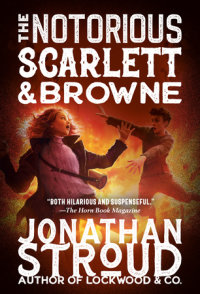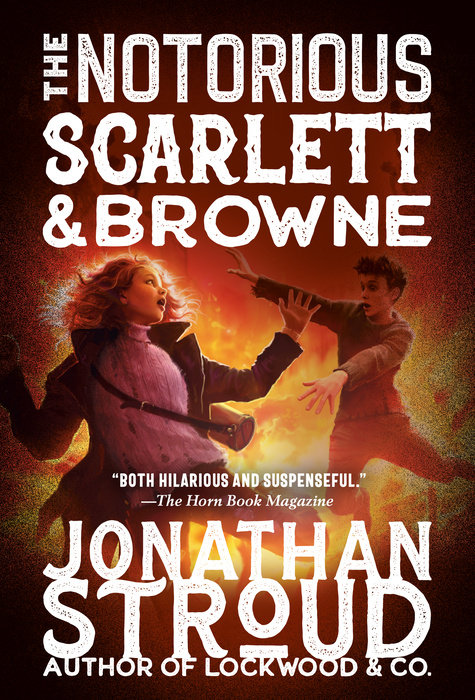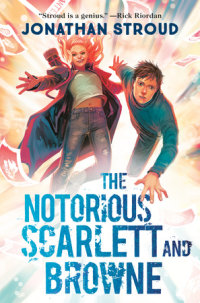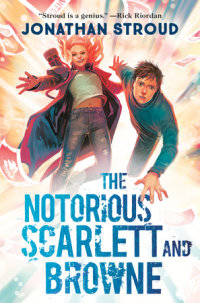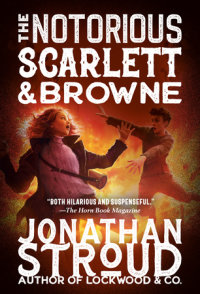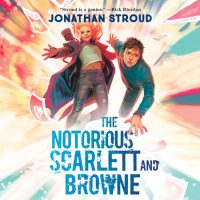1
That evening, with the sun setting over the ash fields and the curfew bells ringing out above the cities of the plains, three murderers gathered at a crossroads. They wasted no words in greeting. The youngest climbed the broken tower to survey the land; the oldest took up a position of concealment in the ruins beyond the ditch. The third, the bandit captain, strolled to a concrete slab that lay amid the sagebrush and black foxgloves beside the road. He lit his pipe and sat at ease, waiting for travelers to come to them.
The crossroads was a good place for an ambush, which was why the bandits had selected it. The tumbled walls of the old watchhouse provided cover, while the surviving tower gave a clear view in all directions. They were close enough to the towns to guarantee foot traffic, and far enough away for the militia not to bother them while they chatted with their prisoners. Also, there was a ravine nearby where the bodies could be tipped.
The bandit captain enjoyed his work, and waiting was part of the pleasure. He felt like a fisherman on a riverbank, scanning the surface of the water, knowing that sleek fat trout were close at hand. He sat with his leather coat open, one booted leg extended, sucking on his pipe. Through half-closed eyes he watched the fragrant smoke twirl skyward. Yes, patience was the key. . . . Presently the fish would come.
Sure enough, soon a low whistle sounded from Lucas on the tower. The captain glanced up toward the parapet and noted the direction of the boy’s outstretched arm. From the east, then: the Corby road. Traders, probably, hurrying to reach Warwick before nightfall. The captain rubbed his bearded chin and glanced at the pistol in his belt. From Corby might come spices, furs, black tektite jewels . . . A Corby haul was rarely disappointing.
How would they be traveling? On foot? In a motor vehicle? He could not hear an engine.
He got to his feet unhurriedly, took his pipe from his mouth, and set it on the slab to await his return. Stepping through the sagebrush, he stood ready at the side of the road.
The ash fields were soft and sugary in the evening light. Long shadows, sharp as coffin nails, stretched from the pines behind the ruins. To the east, the shadow of the tower was a slash across the red-brown earth.
And now two bicycles came into sight, making for the crossroads.
The bandit captain frowned in mild surprise. Bicycles were not unusual in the safe-lands, but the Corby road was long and arduous and had deteriorated in the period of the Rains. As he watched, the lead bike weaved smoothly to avoid a pothole. The one behind swerved at the last minute, teetering on the brink of disaster, righted itself, and rushed on.
Both riders were heavily laden with rucksacks and packages. Despite this, and even at a distance, he could see how slight they were. If they were young, this suggested further possibilities. There was a slave market in Warwick, and the bandit captain was on passable terms with its overseer.
He waited until he could hear the rattle of the wheels. Then he walked out into the dying sunlight and took up a heroic posture, legs straddling the center of the road. He flicked his coat aside and tucked his thumb into his belt, so that his palm cupped the gun hilt loosely.
Smoothing back his glistening mane of hair, he held up his hand.
The leading bicycle came to an abrupt halt, wheel twisting, raising a cloud of thin red ash. The other nearly collided with it. With a squawk of woe, its rider veered away and skewed to a standstill too, his rucksack pitching drunkenly to the side.
They were young. A blinking, bewildered, dark-haired boy. The other was a girl in a broad-brimmed hat.
The red dust settled slowly around them.
This was always the best bit for the bandit captain. He liked the theatricality of the moment. Him blocking the road. Seeing the shock on their faces, the slowly awakening fear.
“One moment, travelers!” he called. “A word with you.”
“Bandit,” the boy said.
“Yeah?” The girl’s head tilted slightly. “I’d never have guessed.”
Her face was in shadow, but the bandit captain could see twirls of red hair spilling down below the angled hat. She wore a battered brown jacket and dark jeans stained with ash. She had a rifle on her back; also a rucksack with packs and tubes strapped to it. There was a pistol tucked into a slouched gun belt just inside her coat.
“A friendly conversation,” the bandit captain said. “That’s all I require of you. I should mention that I have armed men watching us. I must politely request that you remove your weapons and dismount from your bicycles.”
He waited. The riders didn’t move.
“Hat,” the boy said.
The girl lifted a hand slowly, lazily—but not to remove her pistol, as the bandit expected. Instead, she took her hat off, propped it on the handlebars. She sat back on the saddle, one boot resting on a pedal, the other on the ground. Long red hair, dark with sweat, fell in a mess of ringlets either side of a pale and sullen face. No more than nineteen, the bandit guessed. Nineteen and healthy. Certainly worth keeping alive.
But she had still not dismounted from the bicycle. Or taken off her gun. And nor had the boy moved. He wore an old gray militia jacket, which hung long and shapeless on his feeble form. He was slender-faced, dark-eyed, almost girlish in his features, and was gazing at the bandit captain with an expression of vacant intensity. A simpleton, perhaps. The main point was he carried no weapon, and the bandit instantly disregarded him.
He returned his attention to the girl. “Did you hear what I said?”
“Yeah.” Her voice was surprisingly calm. “You want my guns.”
“So then.”
“We’d prefer to negotiate.”
“I’m sure you would.” The bandit captain smiled suavely; he made an expansive gesture in the direction of the ruins. “Sadly, that’s not an option, my dear. You’d do well to obey me. I have five men concealed here, each a crack shot, each with a rifle trained on your heart.”
The girl wrinkled her nose in mild distaste. She looked at her companion. “Albert?”
“Two men,” the boy said. “One on the tower, one at the window of the ruins.”
“Rifles?”
“Pistols.”
The bandit scowled. “Enough of this jabbering. Five men, I say, who—”
But the girl was glancing up toward the ruins.
“Left and up a bit,” the boy said. “Yep. You’ve got him. The other’s at the top.” The curious thing was, he wasn’t looking at her or at the ruins but was still watching the captain with his big, dark eyes.
“Okay, that’s fine,” the girl said. “Which would I take first?”
“The one on the tower is the best shot. He’s the fastest. The one at the window sucks.”
A muffled voice came from the ruins. “Hey!”
“This guy?”
“Was good, but his nerves are shot. He drinks too much.”
The bandit captain had run a pub before his rages got the better of him and he killed a man in a brawl. He had a thirst on him now, and he could feel his anger swelling in his belly as the conversation ran away from him. Just looking at the boy’s bland, blank face made him oddly furious. That and his disconcertingly accurate chatter. He had the sense that he was missing something, and that infuriated him too. If it hadn’t been for the girl, for the price she’d fetch at auction, he would have taken out his pistol and shot them both where they stood.
“Excuse me,” he said. “If I could get a word in for a moment, we’re agreed that several guns are trained on you, correct? The point is—if you go for your weapon, we will kill you. If you try to run, the same.”
“Cycle,” the boy said.
“What?”
“We’d cycle. Not run. Look, we’re sitting on bikes.”
“Talk some sense,” the girl said.
“Gods above us! It makes no difference!” The bandit stamped his boot upon the road. “Cycle, run, or flap your arms and fly like two toothed birds, the outcome will not change.”
A breeze blew a curled strand of hair across the girl’s forehead. She brushed her face clear. She had green eyes, as bright and cold as glass. The bandit found it hard to look at them. “All right,” she said slowly, “keep your pants on, mister. No need to get upset. So what happens if we do as you ask?”
The bandit captain flicked irritably at a dusting of ash on the side of his tight black jeans. He had lost his calm, and that made him feel put out. Lucas would have seen that, and Ronan, too; they would needle him about it later. “Well,” he growled, “suffice it to say we are gentlemen of the road, and we have our own code of honor. We will look through your bags, perhaps take a few trifles, things that appeal to us. . . .” He shrugged. “That is all.”
“And after that?”
“We let you go.”
“Albert?”
“They’ll kill us,” the boy said.
The bandit started. “I assure you—”
“At least they’ll kill me. Shoot me or cut my throat, dump me in a ravine for the wolves to find. You they’ll keep alive, Scarlett. Maybe sell you to the slavers. If you’re lucky.”
“Oh, dear,” the girl said. She stared at the bandit captain with her bright green eyes.
The captain found his own gaze flickering uneasily to and fro. He adjusted his position slightly in the road. “Whatever your fate,” he said thickly, “it is ours to decide. Throw away your gun and dismount. I will not ask again.”
